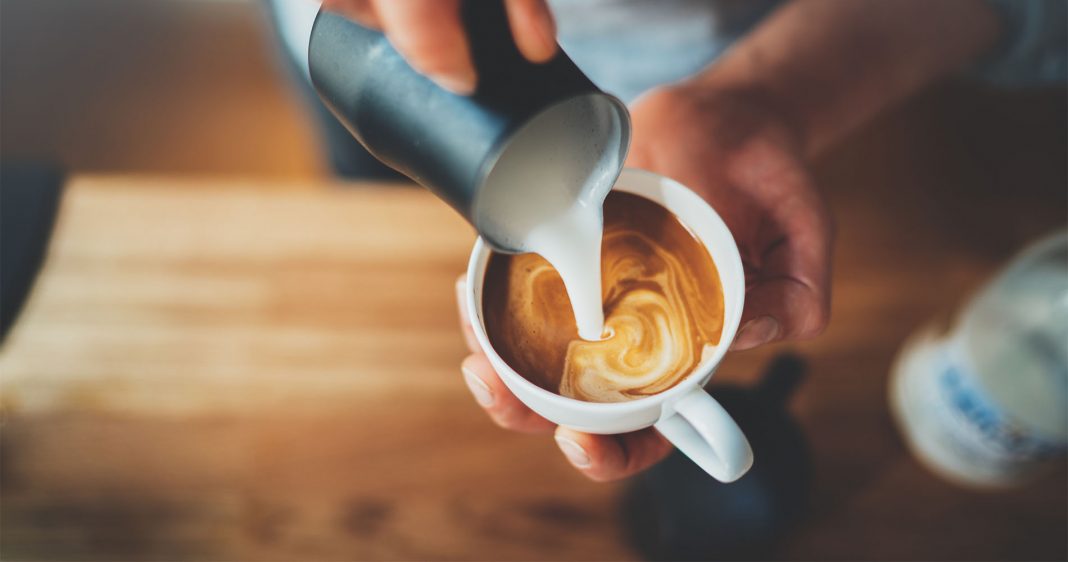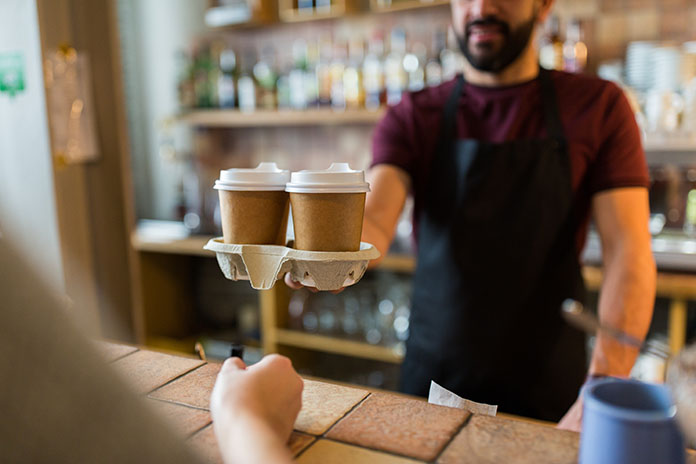The Hellenic Coffee Association outlines the profile of the Greek coffee consumer and highlights issues and factors that determine the domestic coffee market, through the nationwide survey carried out on its behalf by Kappa Research.*
Greeks love coffee. And despite being a relatively small market, they manage to influence trends and habits, creating strong followship and giving out know-how to international coffee professionals and markets all around the world. Under this light, it is interesting to see the outcomes of the nationwide survey on the relation that Greek consumers hold with coffee, conducted by the survey company Kapa Research, commissioned by the Hellenic Coffee Association.
The research was conducted on a sample of people with a representative proportion regarding the population, and it was carried out in January 2023. The results of the two-part survey are revealing both in terms of consumer preferences in coffee inside and outside their home, and in terms of the market, as it has been shaped after the pandemic and after the changes it has undergone due to the price increases recorded in basic goods.
The profile of the Greek coffee consumer
From the processing of the first part of the research, various findings related to the frequency of coffee consumption in Greece have emerged, including how often we buy coffee at home, the actual coffee consumption and a series of other factors that determine the landscape of the Greek market.
Drinking coffee is a strong modern Greek tradition, as 95% of Greeks buy coffee. More than 8 out of 10 respondents drink coffee daily, while most of those who don’t (66%) make sure they have coffee at home. Half (50%) of coffee drinkers consume more than one coffee a day, usually 2 or 3.
For 73% of coffee drinkers, the habit of drinking coffee is solid and is not replaced by the consumption of other beverages such as tea or chamomile.
More than half (56%) of respondents who drink coffee stated that they usually drink it at home, 25% at their workplace, while 18% outside the home or work. In fact, when enjoying it outside their home or work, 62% pick a coffee shop with table seats and 33% takeaway.
“Drinking coffee remains a strong modern Greek habit with 8 out of 10 people enjoying it daily.”
This habit, especially regarding consumption outside the home, was not affected even by the changes and restrictions inflicted to our daily lives by the pandemic. Characteristic of the power of this habit is that 53% of the respondents state that they have never thought of giving up coffee. However, 17% would give it up for health reasons, 14% for financial reasons and 13% because coffee inhibits their sleep. It is of particular interest that for 38% of those who drink coffee, limiting its consumption at home, at work or outside the home, either for financial reasons or for other reasons, would automatically mean limiting their social interactions.
The coffee market in Greece
Within the second section of the research, the emerged findings are related to the changes recorded in consumption during the last period, due to the price increase in basic goods. Changes in coffee consumption after the pandemic are also recorded, as well as consumer preferences, which vary according to the point of purchase (foodservice – supermarket).
More specifically, when Greeks go out and drink coffee in cafeterias, they prefer espresso 53%, Greek 22%, instant coffee 14% and filter 9%. Greek coffee takes the lead at the supermarket with 33%, followed by instant with 26%, espresso with 15% and filter with 15%, while 8% do not buy their coffee from supermarkets.
Also interesting is the question of whether consumers who buy coffee for their home prefer it already ground, coffee beans, or coffee capsules. Already ground is bought by 78%, capsules by 18%, while 3% of consumers buy beans that they ground themselves.
The next questions were on the price of takeaway coffee and the coffee we drink in coffee shops. It is impressive that, concerning the takeaway coffee, 43% find the price expensive while 40% reasonable, 10% very expensive and 5% cheap. Accordingly, it is worth noting that 52% of respondents find coffee at the cafeteria expensive, 25% very expensive, 21% reasonable and only 2% cheap.
With regard to the formation of prices, people who consume coffee (95% of the respondents) estimate that in recent months, its price has increased. The total percentage of people who answer that the price has increased is 93%, with 75% of respondents answering that it is certain that coffee price has increased and 18% answering that it probably has increased.
“The vast majority of coffee drinkers are concerned by the price increase, while 80% oppose the excise tax.”
As for the effect of price increase on how often they go out for coffee, more than half (54%), respond that they have limited their going out due to the general climate of price increases, while 45% of respondents report that they have not limited their going out to enjoy their coffee, despite the increases.
Finally, the respondents’ opinion regarding whether there should be an excise tax on coffee is categorical: 80% respond that there should not be a special tax, with 66% of them answering “definitely not” and 14% “probably not”, as they consider that this specific measure burdens the price of the product that constitutes their daily habit.
METHODOLOGY OF THE RESEARCH
The quantitative research by Kappa Research for the Hellenic Coffee Association was carried out on a sample of 1,003 people in the 13 Regions of the country, between January 17th and 24th. The participants were men and women aged 17+. Data collection partially used the method of telephone interviews (61%, 611 people) and partially based on an electronic questionnaire through the specially designed Kappa Research online panel (39%, 392 people).
*The survey was published in the print edition of Forum SA’s “Snack and Coffee Magazine”, No 106, March – April 2023





















